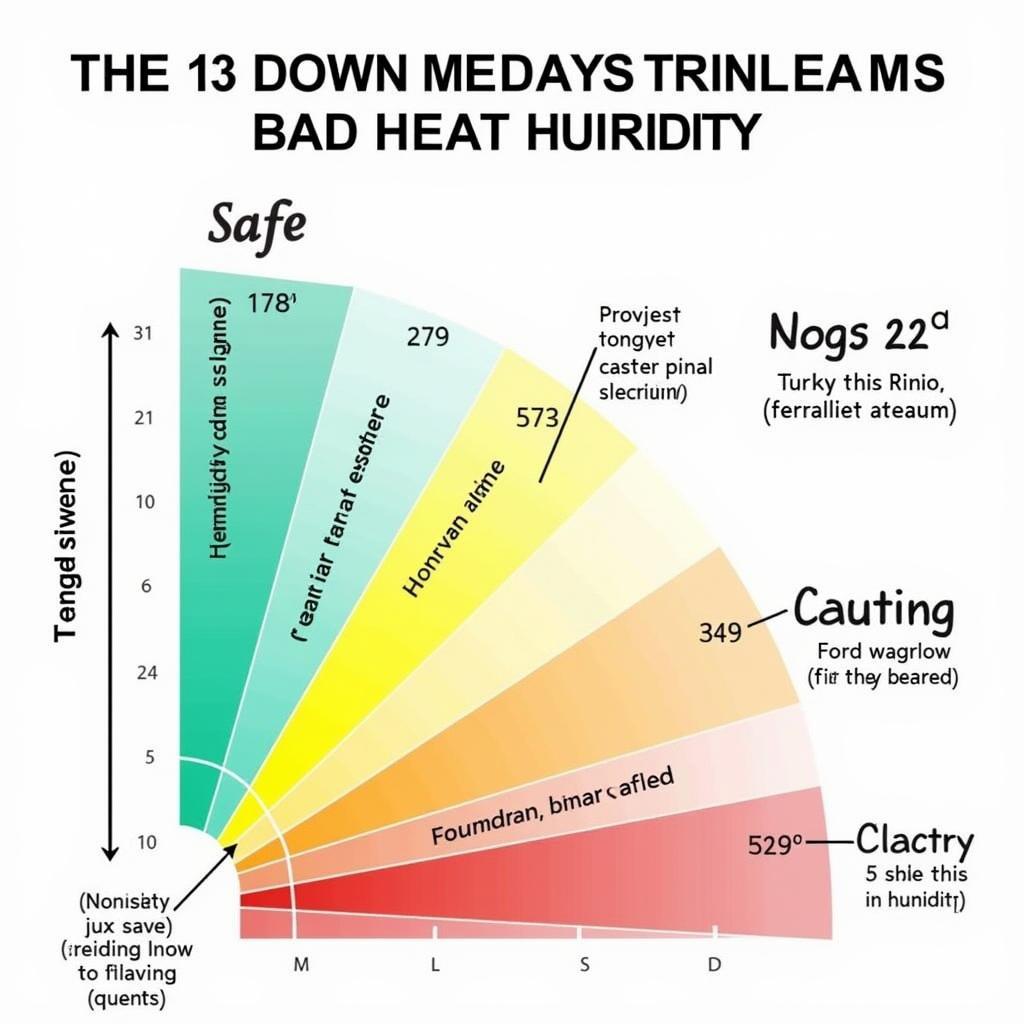Knowing when it’s too hot to ride your horse is crucial for their well-being. Heat and humidity can quickly take a toll on horses, leading to heatstroke, exhaustion, and other health problems. So, how do you determine if the weather is suitable for riding?
Recognizing the Signs of Heat Stress in Horses
Before we delve into the specifics of temperature, it’s crucial to understand how horses experience heat. Unlike humans, horses sweat less efficiently, making them more susceptible to overheating. Look out for these key signs:
- Elevated Respiratory Rate: Rapid breathing is one of the first indicators of heat stress.
- Excessive Sweating or Lack of Sweating: While profuse sweating is expected during exercise, a complete absence of sweat can be a dangerous sign of anhidrosis.
- Lethargy and Weakness: If your horse seems unusually tired or sluggish, it might be struggling with the heat.
- Stumbling or Difficulty Walking: Heat exhaustion can impair coordination and balance.
- Elevated Heart Rate: A rapid heart rate is a sign that your horse’s body is working overtime to cool down.
- Dark or Discolored Urine: This indicates dehydration.
When is it Too Hot to Ride?
While temperature is a significant factor, humidity plays a crucial role too. The combination of heat and humidity creates a heat index, which more accurately reflects how hot it feels to your horse. A general rule of thumb is to avoid riding when the heat index exceeds 150. However, individual horses have varying tolerance levels.
Using the Heat Index to Guide Your Riding Decisions
You can calculate the heat index using a chart or online calculator, combining temperature and relative humidity. Here’s a simplified guide:
- Heat Index Below 120: Generally safe for riding, but monitor your horse closely.
- Heat Index 120-150: Ride with caution, especially during peak heat hours. Shorten your rides and choose shaded trails.
- Heat Index 150-180: Avoid strenuous riding. Consider light exercise early in the morning or late in the evening.
- Heat Index Above 180: Do not ride. Focus on keeping your horse cool and hydrated.
 Heat index chart for horse riding
Heat index chart for horse riding
Tips for Riding in Hot Weather
Even when the heat index is in a safe range, take precautions:
- Ride During Cooler Hours: Opt for early morning or late evening rides when the temperature is lower.
- Shorten Your Rides: Reduce the duration and intensity of your rides.
- Seek Shade: Choose trails with ample shade.
- Provide Plenty of Water: Offer your horse water frequently before, during, and after riding. Consider adding electrolytes to their water.
- Cool Your Horse Down Properly: After riding, sponge your horse down with cool water, focusing on the large muscle groups. Use a sweat scraper to remove excess water.
“It’s crucial to remember that every horse is an individual,” says Dr. Emily Carter, DVM, specializing in equine sports medicine. “Factors like age, breed, fitness level, and acclimation to the heat will influence their tolerance. Always prioritize your horse’s well-being.”
Conclusion
Knowing when is it too hot to ride your horse is essential for responsible horse ownership. By paying attention to the heat index, recognizing signs of heat stress, and implementing appropriate cooling strategies, you can ensure your horse stays safe and comfortable during hot weather rides. Never push your horse beyond its limits and always prioritize its health and well-being.
Thinking about adding some new gear to your tack? Check out our selection of helmets for horse riding.
FAQs
- What is the best way to cool down a horse after riding in hot weather? Sponging them down with cool water and using a sweat scraper is most effective.
- Can I ride my horse if it’s hot but not humid? While humidity increases the risk, heat alone can still be dangerous. Monitor your horse closely.
- What are the signs of heatstroke in horses? These include rapid breathing, lack of sweating, lethargy, stumbling, elevated heart rate, and dark urine.
- Should I give my horse electrolytes in hot weather? Yes, electrolytes can help replace essential minerals lost through sweating.
- How can I tell if my horse is acclimated to the heat? An acclimated horse will sweat more efficiently and show fewer signs of heat stress.
- Are certain breeds more susceptible to heat stress? Yes, breeds with thicker coats and those originating from cooler climates may be more sensitive to heat.
- Can I use a fan to cool down my horse? Fans can be helpful, especially in combination with other cooling methods.
Need a beautiful bridle for your horse? Visit our page on bridal for horse. You can also find elegant horse neck garland for special occasions.
Attending a show soon? Check out our guide on the Gordyville IL horse show and don’t forget comfortable english horse riding gloves.
For further assistance, please contact us at Phone: 0772127271, Email: [email protected] or visit us at QGM2+WX2, Vị Trung, Vị Thuỷ, Hậu Giang, Việt Nam. We have a 24/7 customer service team.